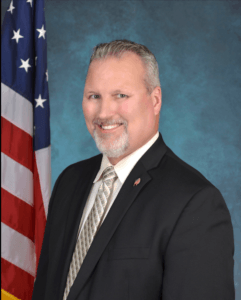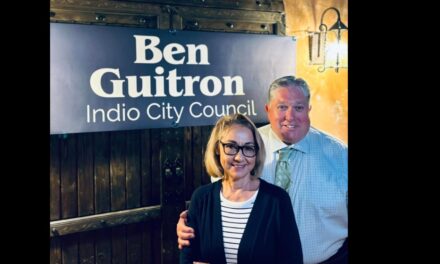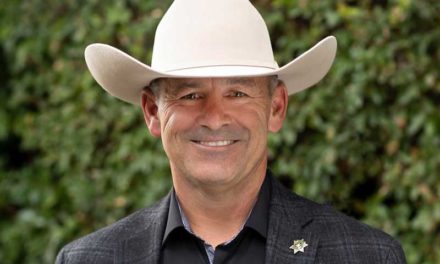Indio has historically been an extremely strong faith-based community so you won’t find Mayor Michael H. Wilson or the majority of his City Council colleagues apologizing for beginning their weekly City Council meetings with an invocation.
It is back, he said, where it belongs.
In fact, in 2015 when then-Mayor Lupe Ramos Watson eliminated the invocation at the weekly meetings public sentiment fell heavily on the side of returning it to the agenda.

Mayor Michael H. Wilson
“There has not been one Indio resident speak opposed to our current policy,” said Wilson, a self-described non-denominational Christian. “Our Hispanic community specifically is very strong Catholic-based.”
Men and women of all faiths and denominations have delivered the invocation. Wilson himself has even given it when someone was a no-show.
The invocation has been delivered at City Council meetings for three years and this year, an election year in which Wilson is seeking re-election, it has suddenly become an issue – and not among Indio residents. Two Palm Desert residents have attacked Wilson for allegedly asking members of the audience to stand and bow, which is against the city ordinance. The pair has also criticized Wilson for his stance on Indio becoming, or not becoming a sanctuary city.
The pair has reportedly never complained about Palm Desert’s invocation, according to Mayor Sabby Jonathan.
“The Palm Desert couple has attacked me as a personal hatred,” Wilson said.
The City Council does not endorse the content of the invocation and does not endorse the invocational speaker’s particular faith, belief and/or religious denomination. The City Council does not engage in any prior inquiry, review of or involvement in, the content of the invocation, except to request the speaker to refrain from using the invocation as an opportunity to attempt to convert others to a particular faith or belief and for the speaker to face the City Council. The City Council has an established neutral policy for selecting and scheduling invocational speakers.
Up until Ramos Watson’s term as mayor in 2015, Indio had an informal policy on an invocation going back most of its incorporated years as a city. When Ramos Watson became mayor in 2015 she directed staff to remove it from the regular agenda. Her colleagues were not happy and used the city’s dispute resolution process to get the invocation reinstated.

Lupe Ramos Watson
“It was apparent that four members of the Council felt strongly that an invocation was a part of our community and history and directed a formal ordinance be crafted for Council action,” Wilson said. “That ordinance was adopted by 4/5 of the Council.” Ramos Watson abstained.
As a devout catholic, schooled by the Nuns of Notre Dame, and a graduate of Indio’s local private Catholic School, Ramos Watson said when she was first approached about this issue in 2008, she reflected deeply on scripture and took to heart Mathew 6; 5-6 where the Word teaches followers about acts of prayer.
“I found this very helpful in making my decision,” Ramos Watson told Uken Report. “As a representative of all residents in the city of Indio, I am committed to conducting the business of our formal government body in an open atmosphere that is welcoming to everyone and benefits the diverse residents of the city. As such, I do not want anyone to feel excluded or obligated to participate if they believe their faith is not represented nor do I want anyone to feel coerced to participate (for example stand or bow heads) if they are not comfortable in doing so. The practice of one’s faith is a very personal decision and I do not believe that such practice should be part of our formal government business meetings — as was expressed by President Jefferson in his writings about separation of church and state.”
That’s a long way, Ramos Watson said, of saying her perspective on this issue has not changed or evolved over time.
“I stand firm on justice for all,” Ramos Watson said. “The Council voted on a resolution to make invocation law so it is now an official part of our agenda — whether the public likes it or not.”
Invocations are common in the Coachella Valley. The Desert Hot Springs, Cathedral City and Palm Desert city councils each begin their meetings with an invocation. In 2014, the U.S. Supreme Court ruled that legislative bodies can begin their meetings with a prayer — even if it favors a specific religion.
Image Sources
- Mike_wilson: Michael H. Wilson






